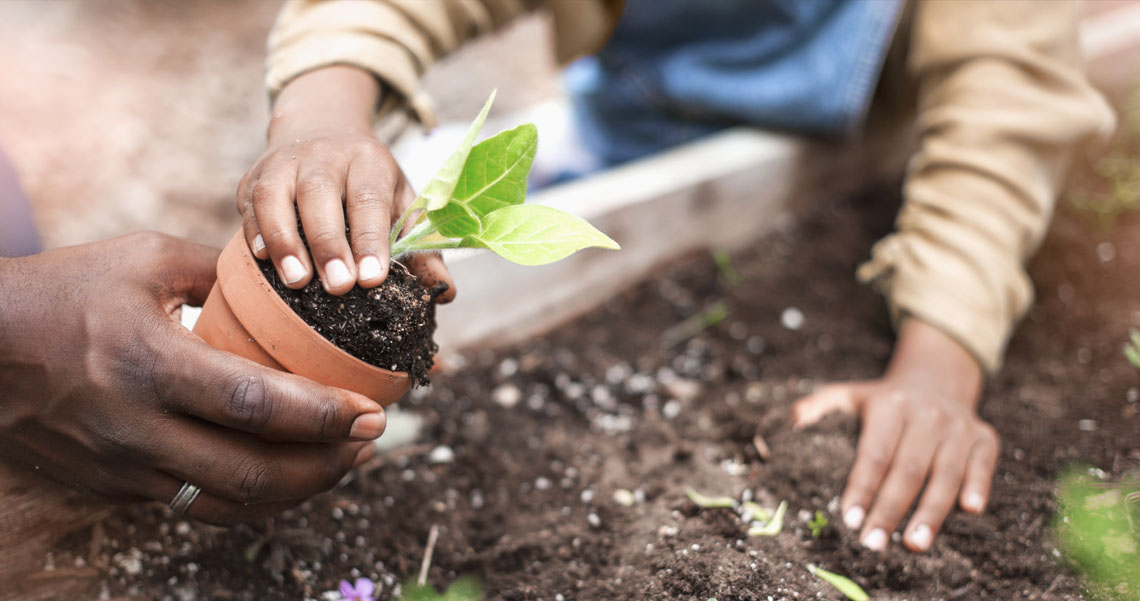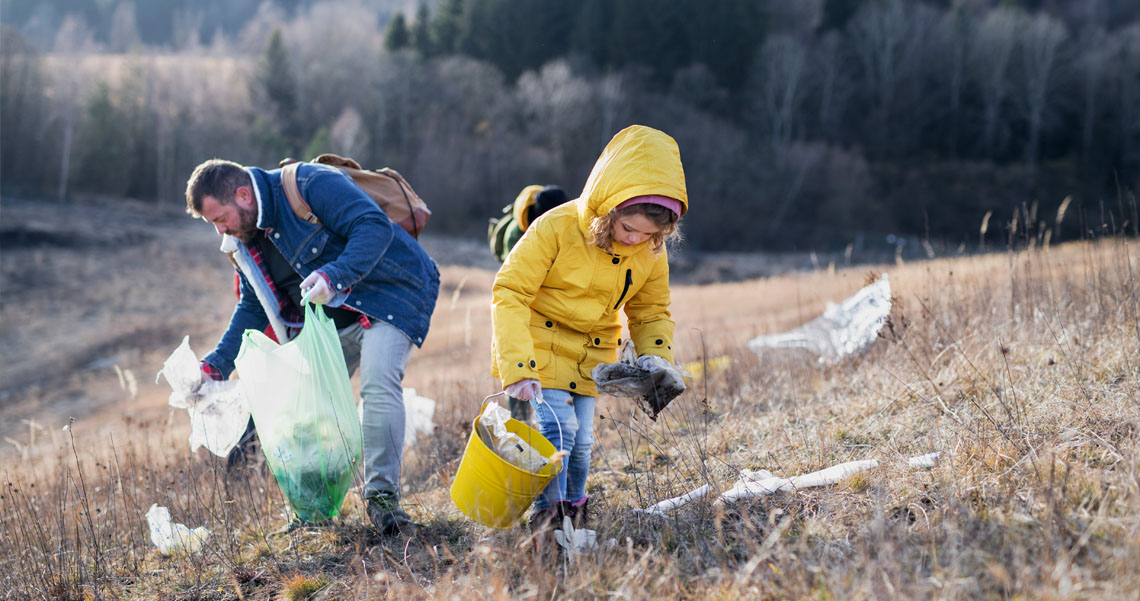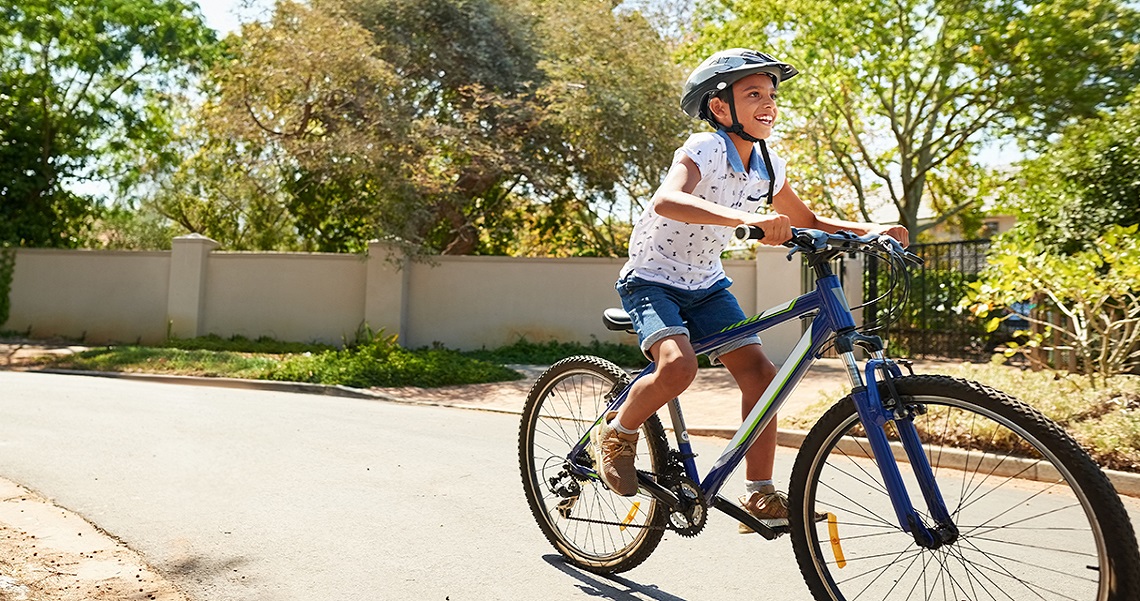Minds On
Our planet
Explore the images then reflect on the following questions.
- How do these images make you feel?
- What are some of the ways we can help to protect our planet?
Action
Background knowledge + evidence = inference
In the Minds On section, you explored a variety of images and considered ways we can help protect our planet. You used what you know or your prior knowledge to answer the questions and brainstorm new ideas.

Now we will practice making inferences. An inference is using what you know and evidence from a text to “read between the lines” and figure something out. This means that in order to make an inference, we also have to be able to provide evidence that supports it.
We can use a sentence stem like “I think… (inference) because… (evidence) to make an inference.
Let’s make inferences!
Let’s explore a video that will help us to know about climate change and how that affects our planet.
The following episode of The Space features environmental activist, David Suzuki, who helps us better understand what climate change is and how it happens.
Think about the following questions before getting started.
- What do you know about climate change?
- Have you explored any oral texts featuring David Suzuki before?
It’s time to combine what we know or our prior knowledge with the text clues from the video to make some inferences about climate change.
- Asking questions can help us focus on specific information to make an inference.
- Make jot notes of the clues you find in the oral text and add your own thoughts.
- Use the sentence stem “I think.… (inference) because… (evidence) to create an inference.
For example:
Why did David Suzuki describe the atmosphere on other planets?
| Text clues | Prior knowledge | My inference |
|---|---|---|
| David Suzuki says that the Earth has the “perfect” atmosphere to help people and animals survive. | I know that people and animals cannot survive in extremely hot or cold areas. | I think David Suzuki describes the atmosphere on other planets because he wants everyone to know that the Earth has a perfect balance. The Earth gives us the perfect temperatures for people and animals to live. |

What is the greenhouse effect? What are greenhouse gases and what do they do? Press ‘Answer‘ to reveal the answer to these questions.
How can people help to protect the planet from climate change? Press ‘Answer‘ to reveal the answer to these questions.
Reflect and infer!
Think-Pair-Share
Think-Pair-Share
If possible, work with a partner to make some inferences using the graphic organizer provided or using another method of your choice.
Complete Making Inferences in your notebook or using the following fillable and printable document.
| Text Clues + | Prior Knowledge = | My inferences |
|---|---|---|
| Text Clues + | Prior Knowledge = | My inferences |
|---|---|---|
| Text Clues + | Prior Knowledge = | My inferences |
|---|---|---|
Press the ‘Activity’ button to access the Making Inferences.
Note to teachers: See your teacher guide for collaboration tools, ideas and suggestions.
Consolidation
Let’s explore another video
Let’s explore another episode of The Space featuring David Suzuki. Examine the video from 1:37-2:19.
Make another inference
Use your background knowledge, the information from this video and what you have learned from the Action section to answer the following questions:
- Why does David Suzuki teach about climate change?
- How did the lyrics of the song connect to David Suzuki’s ideas?
You may:
- use the inference organizer below to organize your ideas and evidence from the oral text
- use the sentence stem “I think… (inference) because… (evidence) to create our inference
- use another recording method of your choice to help organize your thoughts.
Complete Making Inferences in your notebook or using the following fillable and printable document.
| Text Clues + | Prior Knowledge = | My inferences |
|---|---|---|
| Text Clues + | Prior Knowledge = | My inferences |
|---|---|---|
| Text Clues + | Prior Knowledge = | My inferences |
|---|---|---|
Press the ‘Activity’ button to access the Making Inferences.
Think about your learning
Think about the following questions.
- What did you learn about making inferences?
- What kinds of new information did you learn about climate change?
- Do you have any new ideas about how we can protect our planet?
Reflection
As you read through these descriptions, which sentence best describes how you are feeling about your understanding of this learning activity? Press the button that is beside this sentence.
I feel…
Now, record your ideas using a voice recorder, speech-to-text, or writing tool.



